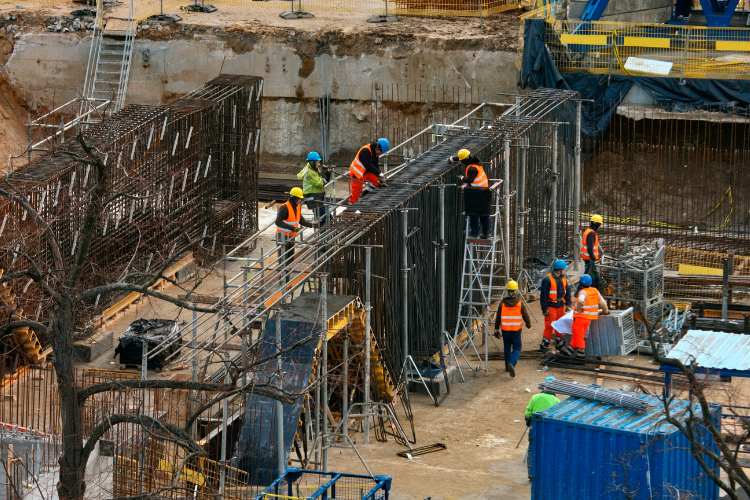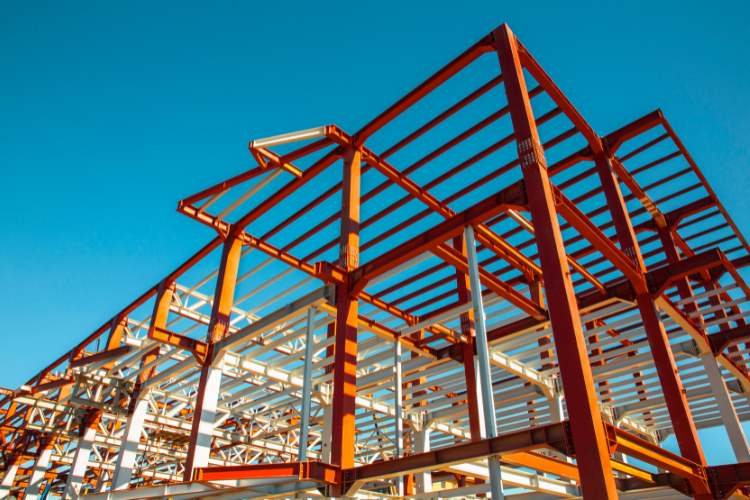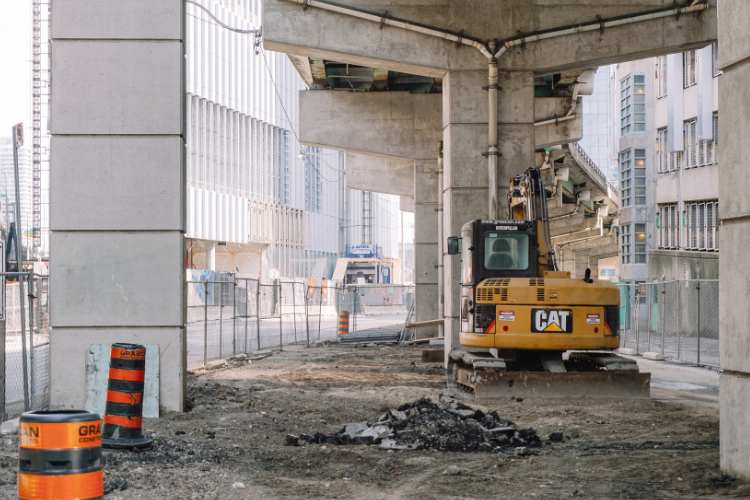Effective budgeting and estimating are vital for the success of any commercial construction project as they lay the foundation for financial stability and project efficiency. From the moment a project begins, managing costs involves more than just setting a budget; it requires a comprehensive understanding of the various expenses that contribute to the project’s overall cost. Commercial construction projects typically involve several variables that can impact costs, including materials, labor, equipment, and unexpected contingencies.
A well-structured budget not only helps you allocate resources appropriately, but it also plays an important role in preventing cost overruns, managing cash flow, and ensuring that the project is completed within the financial constraints set by stakeholders. Proper budgeting empowers project managers and stakeholders to make informed decisions, anticipate potential financial pitfalls, and implement strategies to address those pitfalls proactively. Using tools such as construction budgeting software can streamline this process, making it easier to track and manage expenses efficiently.
In this blog post, we will explore the different types of costs commonly associated with commercial construction projects. Additionally, we’ll offer practical tips and best practices for managing your budget effectively, from initial planning through to project completion. No matter your role in the project, understanding these elements will help you navigate the complexities of construction budgeting and contribute to the successful execution of your projects.
Table of Contents
What to Include in a Construction Project Budget
A comprehensive construction project budget can be broken down into three main categories:
Direct Costs
Direct costs are expenses directly linked to the construction process. These include:
- Material Costs: The cost of all materials required for the construction project
- Labor Costs: Wages and salaries for workers directly involved in the project
- Equipment Costs: Expenses for renting or purchasing construction equipment and machinery
Indirect Costs
Indirect costs, also known as soft costs, are not directly tied to the construction activities but are necessary for the project’s completion. These may include:
- Bonds: Financial guarantees such as bid bonds, performance bonds, and payment bonds.
- Insurance Coverage: Coverage for risks and liabilities, including builders’ risk insurance, general liability insurance, and workers’ compensation insurance.
- Preconstruction Costs: Expenses incurred before construction begins, such as permits and architectural fees.
- Operational Costs: Costs related to project management and administrative functions.
Profit
Profit is the amount earned from a project after subtracting all costs. It reflects the financial gain from completing a project.
Each construction project is unique and will have its own set of costs to include in the budget. Below is a list of potential direct or indirect costs that could be part of your construction project:
Bonds
Bonds play a crucial role in managing financial risks associated with construction projects. They protect project owners, contractors, and other stakeholders by ensuring that certain financial obligations are met. Here are the main types of bonds a sub may need:
- Bid Bond: Ensures that the contractor will accept the job at their bid price and covers costs if they withdraw.
- Performance Bond: Guarantees the contractor will complete the project as specified, protecting the owner from financial losses.
- Payment Bond: Ensures that all subcontractors, suppliers, and workers are paid, protecting against non-payment claims.
Note: The Miller Act requires federal construction projects over $100,000 to have payment and performance bonds.
Insurance
Insurance is essential for managing and mitigating risks in construction projects, providing a safety net for unforeseen events and protecting against potential financial losses. Here are some key types of insurance that are crucial for construction projects:
- Builders Risk Insurance: Covers losses, theft, or damage to materials and equipment during construction.
- General Liability Insurance: Protects against bodily harm or property damage claims related to the project
- Commercial Vehicle Insurance: Covers vehicles used for business purposes, including trucks and construction vehicles
- Workers Compensation Insurance: Provides benefits for employees injured on the job
- Umbrella Coverage: Offers additional liability coverage beyond standard policy limits
Consulting and Inspection Services
Hiring consultants and inspectors is crucial for project success. Third parties you may work with include:
- Engineers: For structural, mechanical, and electrical engineering services
- Surveyors: For land and property surveys
- Architects: For design and planning services
- Testing and Inspection Professionals: For quality control and compliance checks
Unforeseen Costs
Unforeseen costs are unexpected expenses that can arise during construction. These might include:
- Material Shortages: Price increases or delays in obtaining materials
- Labor Shortages: Increased wages to attract skilled workers
- Weather Delays: Additional costs due to adverse weather conditions
It is usually recommended to include a contingency fund in your budget to handle these unforeseen expenses.
Debt Financing
Debt financing can help manage cash flow and cover project costs. The various types include:
- Material Financing: Loans or credit for purchasing construction materials
- Labor Financing: Funding for labor costs
- Equipment Financing: Loans for acquiring construction equipment
Be sure to account for debt payments in your project budget to help offset the cost of using these forms of capital and project your margins.
How to Manage a Construction Project Budget
Once you have a clear understanding of the various costs involved in your construction project, you’ll want to focus on how to manage these expenses effectively. Implementing a well-structured budget is a continuous process that requires careful planning and monitoring throughout the project lifecycle. To ensure that your budget remains on track while you try to navigate the complexities of managing your finances, here are the phases you should include in your internal processes:
Research and Analysis
The primary goal of your research and analysis is to identify all costs and revenues associated with your project. Construction budgeting software can assist in this phase by organizing financial data, creating timelines, and predicting potential cost overruns based on historical data and real-time inputs.
Pre-Construction Planning
Create a comprehensive budget and timeline by incorporating insights from your research. Ensure that all potential costs, including bonds, insurance, and profit margins, are included, and plan out your payment schedules. Establish a robust documentation system to keep track of all financial records and changes throughout the project.
Analyzing and Tracking Costs During Construction
Continuously monitor and analyze expenses to keep your project within budget. Track individual costs closely and adjust your estimates based on real-time financial data. This ongoing analysis helps you identify any budget elements that may fluctuate throughout the duration of the projectand allows you to refine future cost predictions more accurately.
Analyzing Budgets After Construction
Once the project is completed, review the budget to extract valuable lessons for future projects. Analyzing completed budgets provides insights that can enhance your estimating accuracy, scheduling efficiency, and overall project management strategies. Construction budgeting software can help analyze past budgets and expenses, offering data-driven insights that can improve your estimating accuracy and overall project management.
Getting On Track—and Staying on Track—with Construction Budgeting
Navigating the financial landscape of a commercial construction project can be complex, but mastering effective budgeting is key to achieving success. From understanding the diverse cost categories to employing advanced construction budgeting software, a well-managed budget ensures that resources are allocated efficiently and potential pitfalls are addressed proactively.
Effective budgeting involves more than just estimating costs; it requires thorough planning, regular monitoring, and adaptive management. By breaking down costs into direct, indirect, and profit categories, and by considering elements such as bonds, insurance, and unforeseen expenses, you can create a robust financial plan tailored to your project’s needs.
Utilizing construction budgeting software can streamline this process, providing real-time insights and enhancing accuracy. This technology supports detailed tracking and analysis, enabling you to adjust budgets dynamically and stay on top of financial performance throughout the project lifecycle.
Incorporating these best practices and leveraging technology can significantly improve your project’s financial management, leading to smoother operations and successful outcomes.







